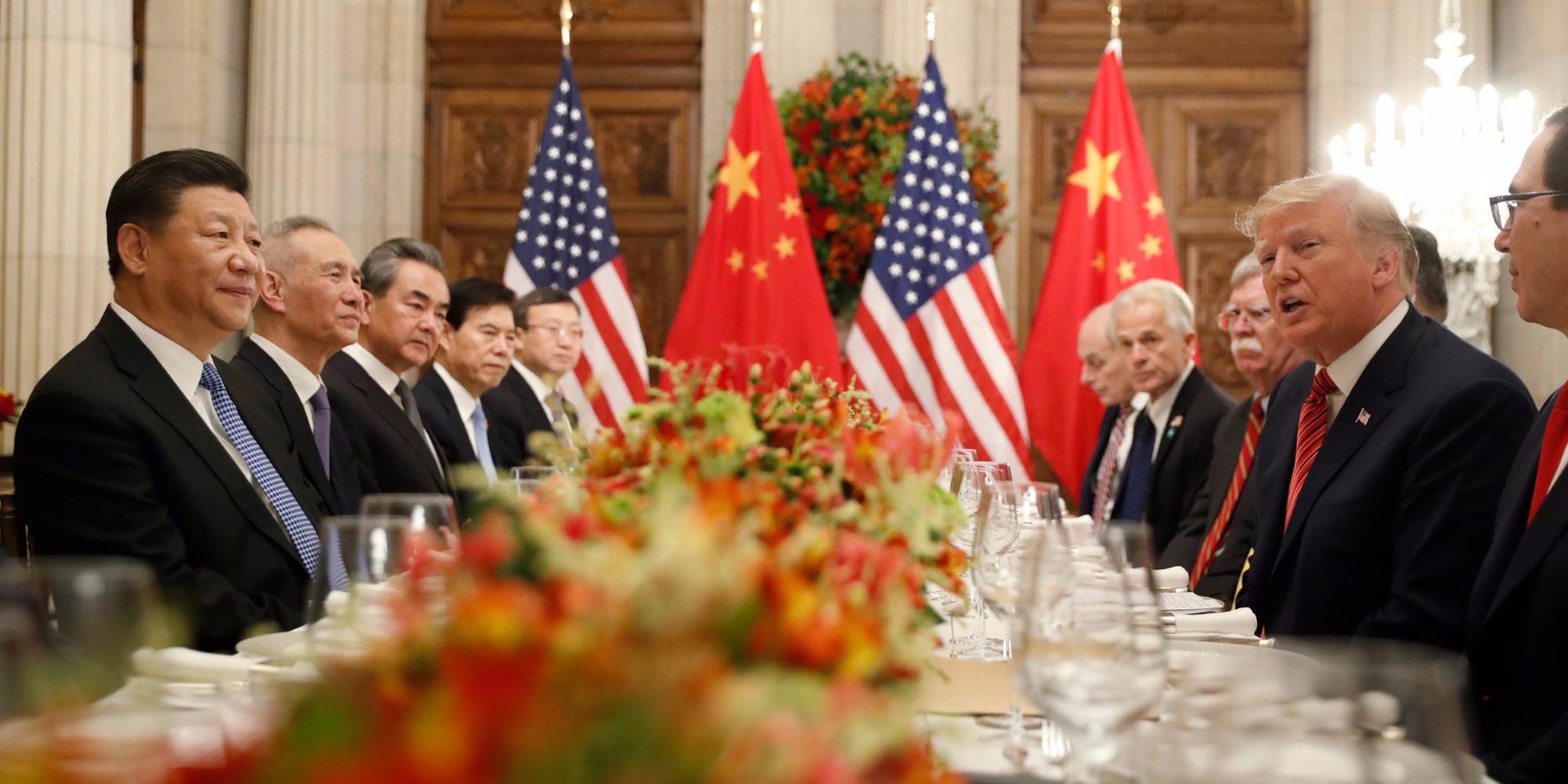- The US Department of Justice charged Chinese telecommunications giant Huawei, its chief financial officer, and two affiliates with bank and wire fraud, stealing trade secrets, and obstructing justice on Monday.
- The charges come as President Donald Trump is scheduled to meet with top Chinese trade negotiators on Wednesday and Thursday to try and resolve ongoing trade-war tensions.
- Commerce Secretary Wilbur Ross said the Huawei charges will not affect trade-war tensions.
- But the Chinese government is furious. Experts say the Huawei saga could derail trade talks.
President Donald Trump is heading for incredibly tense trade talks with China this week, as Beijing’s anger at the US for indicting telecommunications giant Huawei and its chief financial officer (CFO) threatens to derail the two countries’ already strained economic relationship.
Trump is expected to meet top Chinese officials – including Liu He, China’s vice premier and top trade negotiator, and Yi Gang, the governor of the People’s Bank of China – at the Eisenhower Executive Office Building in Washington, DC, on Wednesday and Thursday, in the hope of ending the trade war.
They will address China’s policies on intellectual property, technological transfers, and US demands that Beijing buy more American goods and services, Bloomberg reported.
If this round of trade talks fails, the US is scheduled to increase the levy on $200 billion worth of Chinese goods from 10% to 25% on March 2.

The fact that Trump will personally attend the meetings shows the importance that the White House is placing on the talks.
US Trade Representative Robert Lighthizer, Treasury Secretary Steven Mnuchin, Commerce Secretary Wilbur Ross, and White House economic adviser Larry Kudlow will also take part.
Mnuchin told Fox Business on Monday that he expects "significant progress" from the talks.
But the talks could be derailed by the Department of Justice's (DOJ) charges against Huawei and Meng Wanzhou, who is the company's CFO and the daughter of its founder.
China reacted furiously to the charges, which it has characterized as "unfair and immoral."
DOJ officials charged Huawei, Meng, and two affiliates with bank and wire fraud, stealing trade secrets, and obstructing justice in two separate cases announced on Monday.

In one case, the department said Huawei evaded US sanctions on Iran by telling a bank it had no relationship with a company called Skycom. The DOJ said Skycom is in fact controlled by Huawei and went on to sell more than $100 million in banned technologies to Iran.
In another case, the DOJ accused Huawei of stealing trade secrets from the US, which, according to the indictment, involved having an employee pull apart a T-Mobile device-testing robot and stash part of it in his bag.
Huawei also offered bonuses to any employee who stole trade secrets, the Justice Department said, citing emails obtained during the investigation.
Read more: Huawei's alleged attempts to copycat a T-Mobile robot read like a comical spy movie

The US indictments come almost two months after Canadian authorities arrested Meng at Washington's request. She was forced to give up her passports, and she remains in the country. Washington is expected to request Meng's extradition to the US soon.
Beijing has appeared to punish Canada for the arrest - it detained two Canadian men and sentenced another to death in the weeks after Meng's arrest.
Ross said on Monday that the Huawei indictments were "law enforcement actions and are wholly separate from our trade negotiations with China," according to Reuters.
But the Chinese reaction suggests that Beijing is ready to retaliate against the charges, which could come in the way of trade talks.

Wen Ku, a senior official at China's Ministry of Industry and Information Technology, told reporters on Tuesday that the indictments were "unfair and immoral," and that the US is seeking to "blacken" Chinese companies "in an attempt to strangle fair and just operations," according to The Guardian.
Yan Shuang, a spokesman for the Chinese foreign ministry, added that there were "strong political attempts and political manipulations" behind the indictments.
Tech companies in China, such as Huawei, are legally required to provide data and assistance to the Chinese government.

Huawei, which has generally struck a softer tone throughout the saga, said it was "disappointed" by the charges, BBC reported.
The company also told Business Insider in a statement on Monday that it "denies" the charges and that it "is not aware of any wrongdoing" by Meng. It also said it "believes the US courts will ultimately reach the same conclusion."
Tom Mitchell, the Financial Times' Beijing bureau chief, said Monday's charges "cripple prospects for US-China trade deal."
Jasper Lawler, head of research at London Capital Group, said on Tuesday: "The overriding fear is that this move will negatively impact trade talks, making a deal even less likely."

'Good always prevails over evil'
The Global Times, a Chinese state-run tabloid, accused the US of "hysterically persecuting" China's tech companies, adding, "Good always prevails over evil, and the Huawei case is no exception."
It also encouraged the Chinese government to "promote negotiation with the US, and try to restrict Washington from treating Huawei unfairly."
The Global Times has continually lashed out at the US and Canada over the Huawei case. On Sunday, it suggested that Canada was "[living] the life of a whore" by keeping Meng detained at the request of US officials.

